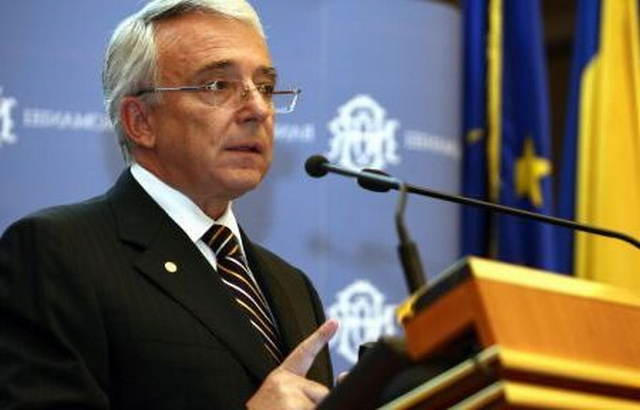Economic Macro-Stability
The National Bank of Romania warns against the risks threatening the local economy, in an uncertain international context.

Florentin Căpitănescu, 08.01.2016, 13:45
In 2015, the macroeconomic conditions in Romania were stable, says the National Bank Governor Mugur Isarescu, adding that the institution was not forced to make large-scale interventions in the market. The more rapid economic growth in the second half of the year relied on the increase in private consumption, after household incomes went up, loans picked up, indirect taxes were cut and the overall confidence in the economy strengthened, says Mugur Isarescu. In spite of the encouraging results, the central bank calls for prudence, given the changeable international context, with growing tensions in the markets.
Mugur Isarescu: “The global economy and our region were by no means stable, but we suggest that this is also the context in which we must plan our future. The domestic currency, the leu, may need further re-stabilising measures. Because external influences may indeed affect the balance here. Higher volatility, larger capital movements will influence us, as they did in the past, and they may generate temporary imbalances in the market. What we need to do is not reinforce such a highly unstable environment.”
On a domestic level, Mugur Isarescu urged politicians to be cautious when approving income increases, particularly in a year with local and legislative elections. Speaking about the Government’s decision to raise the national minimum wages as of May, the National Bank Governor also said that an increase in citizens’ incomes was inevitable, but he criticised the concurrent fiscal relaxation measures, such as the VAT and dividend tax cuts.
Mugur Isarescu: “I believe that in Romania, given the greater integration and the free movement of labour, a salary increase was inevitable. For this reason, and because we see this salary raise as something that no government will be able to avoid without high political, social and economic risks, we believe that fiscal relaxation is excessive and not very prudent.”
On the other hand, the central bank decided to keep the key interest rate at 1.75% per year and to lower the minimum compulsory reserve rate for foreign currency liabilities to 12%. According to economic analysts, the two measures were predictable and will not have a major impact on loans, due to the significant availability of cash in the market.
(Translated by Ana Maria Popescu)






























